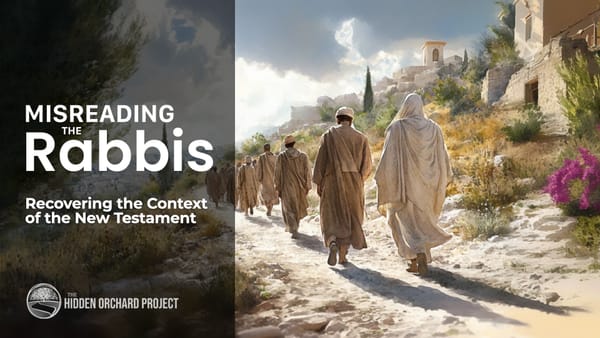Eternal Punishment
As pervasive as the idea of eternal punishment is, there is one primary passage from which this idea is found. However, reframing this idea can be difficult as many passages have been subsequently translated to support this doctrine.

Continuing the exploration of key concepts in the New Testament, among the most ubiquitous yet troubling ideas is that of "eternal punishment". Having previously recontextualized the doctrine of Original Sin, we have the foundation to move deeper into this component of reward and punishment.
Though the seeds of this idea may have been present prior, it is the 4th-5th century church father, Augustine, who is credited with the proliferation of this doctrine in the emerging church. As one of Martin Luther's favorite commentators, Augustine's ideas were later imported from the Catholic church into Protestantism through Luther's Bible translation.
As pervasive as the idea of eternal punishment is, there is one primary passage from which this idea is found. However, reframing this idea can be difficult as many passages have been subsequently translated to support this doctrine.
The primary text is found in the book of Matthew when Jesus teaches about the Sheep and the Goats.
And these will depart into eternal punishment, but the righteous into eternal life.” - Matthew 25:46
Understanding this will require a reader to understand the following;
- the diversity of the Greek and Hebrew terms in this passage;
- familiarity with the Jewish concept of Worlds of creation
- a working understanding of the human soul, according to Judaism
Through this effort, we may once again find that Jesus' words are in alignment with Rabbinic tradition, and, what this means for us today.




